15 Moments That Show Kindness Is Quiet but Changes Everything

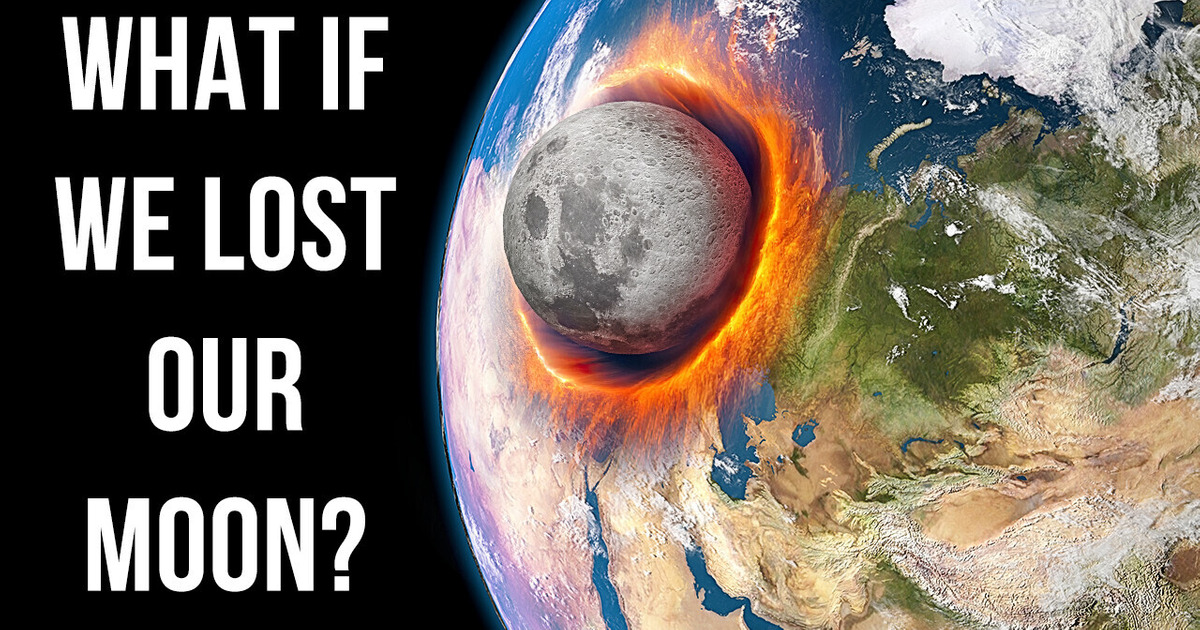
Now, what would Earth look like if it was the only planet in the Solar System? Or what would happen to our planet if the Moon went missing? Or what if dinosaurs had never gone extinct? We’ve all heard the story: over 66 million years ago, a big asteroid hit Earth.
Almost 75% of creatures that roamed the planet at that time were wiped out in mass extinction. Amongst them, dinosaurs. Tyrannosaurus, Triceratops, Velociraptor... All gone. But because of that, we’re all alive! According to science, the human race was developing more safely without these gigantic creatures hunting us.
But what if that asteroid had crashed to the ground a few miles away from the place where it fell? What would the world be like today? Imagine walking down the street to your local supermarket and coming across a truck-sized T. rex. Could that ever happen in this alternate universe we’re talking about?
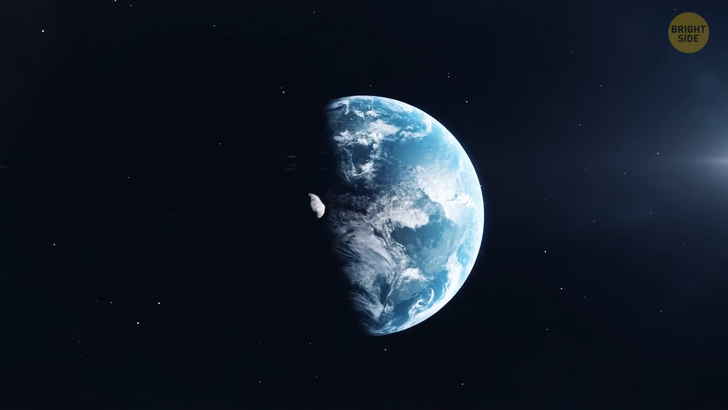
Well, dinosaurs would have had to survive a lot more than an asteroid to be living nowadays. About 55 million years ago, the temperatures on the planet rose. The climate became 14˚F hotter than it is today. Rainforests flourished, and vegetation was abundant.
In this scenario, herbivore dinosaurs would have likely thrived. But they would have started to look a bit different. Plants growing during that time period were not very rich in nutrients. This means that dinosaurs would have probably shrunk in size, not having the necessary energy to grow all the way to their full size.
Then, about 34 million years ago, South America and Antarctica split, which resulted in a cooler and drier climate. During this period, long-legged dinosaurs would have been the ones to survive. At that time, animals had to travel long distances to hunt since seasons started to affect the availability of food and water.
Compared to the mammals of that period, dinosaurs would have had significant advantages, like having more teeth or better eyesight. And speaking of mammals, some of them probably would have never evolved — they would have become dinosaurs’ breakfast first. By the way, did you know that some dinosaurs live among us today? Think pigeons. Or birds in general. They’ve all evolved from dinosaurs!

Now, I bet you’ve heard once or twice that we only use 10% of our brains. If this was true, what would happen if you used 100% of our brain? Would you be able to compose a symphony? Would you become a tech genius and create a multi-million dollar company overnight? Let’s start with the facts. We don’t use only 10% of our brain. This notion became highly popularized by movies, but it’s not very accurate.
The truth is, the largest portion of your brain is active at all times. But not all parts are working simultaneously. The exact percentage varies from person to person. Now, neurologists say you wouldn’t want to be using 100% of your brain’s capacity at once. Your body simply wouldn’t have enough energy for that, which means you’d be hungry all the time! Imagine the number of calories you’d need to consume for that to work. You would also be limited by your body’s basic needs — breathing, digesting food, and circulating blood.
So if you did use all of the capacity of your brain, you’d be tired all the time. It’d be worse than running a marathon without any preparation. The brain would need all the blood you’d have, which would mean less oxygen for your lungs. Different organs would begin to shut down one by one. In a nutshell, it’d be terrible for your health. By the way, some researchers have estimated that more than 60% of the brain is composed of something that is called neural dark matter. In other words, this “dark matter” consists of neurons that have no apparent purpose or simply don’t respond to common stimuli.

Marathons are some of the greatest feats of strength and endurance in the world. But what would happen to your body if you decided to run a marathon without any training? The statistics are overwhelming: nearly 50% of participants drop out of the race before crossing the finish line. A regular marathon is 26 miles long. And if you’re not used to physical activity, it’s a great challenge.
You’d probably be able to run the first mile without any serious problems. (But breathing loudly and heavily through your mouth.) By the third mile, your body temperature would skyrocket, and you’d feel as if you have a mild fever. You’d most likely give up here. But if you decided to keep going, you’d have to trick your mind and body into running another 23 miles.
By the 20th mile, you’d hit what is known as the Wall. Your body would have burned all your reserves of glucose, and you’d get extremely tired. Even experienced runners often go through this stage. By the end of the marathon, you’d be promising yourself to never do this again. You’d leave the race with at least a few cramps and many different food cravings. Now, picture this: it’s a clear, beautiful night. There are no clouds, and you can see two of the brightest planets in Earth’s sky blinking up there. Those are Mars and Venus.
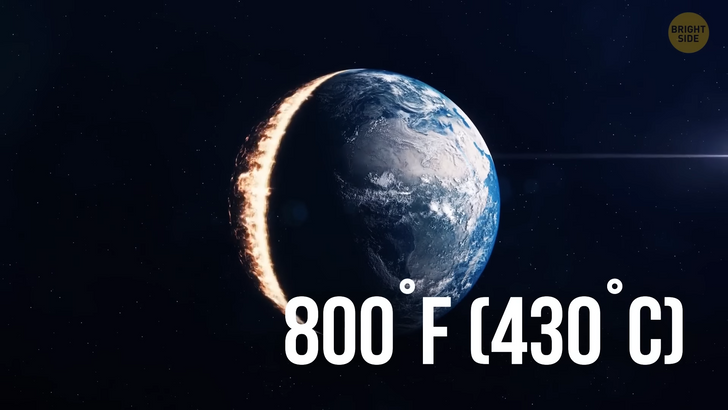
Now, have you ever imagined what would happen if Earth was the only planet in the Solar System? If the other planets never existed, things would be really different for our Earth. The planets in the Solar System work together, keeping one another in a certain place with their gravitational pull. Now, if Mercury or Venus ceased to exist, Earth would drift closer to the Sun.
Our atmospheric temperature would become similar to that on the surface of Mercury — 800˚F. This would make life on Earth impossible. But if Jupiter or Saturn disappeared, Earth would most likely drift further away from the Sun, and its temperature would drop to below −200˚F. If life managed to survive in such circumstances, it would probably be aquatic. The position of Earth in the Solar System not only affects all kinds of lifeforms, but it also dictates seasons, the length of days, and how long one year lasts.
Now, when we say no other planets, we mean no moons either. So, what would happen if one fine day, the Moon just disappeared? That would have catastrophic consequences. The Moon has the largest influence on Earth’s tides. In a moonless universe, tides would shrink by about 75%. This would greatly affect crabs, mussels, and sea snails that live in tidal zones. This would consequently disrupt the diet of larger animals.
Eventually, it’d affect entire coastal ecosystems. Earth’s weather would change. Tides and tidal currents help mix cold Arctic water with warmer water from the tropics, stabilizing the climate worldwide. Weather forecasting would become almost impossible. And the average difference between the hottest and coldest places on Earth would become extreme.
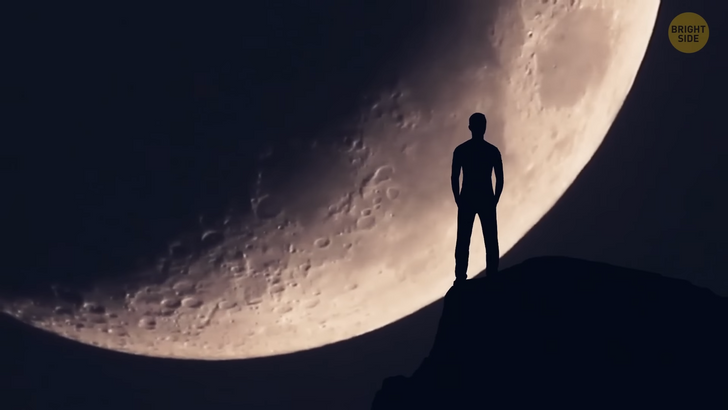
The absence of the Moon would also influence Earth’s tilt. Right now, Earth tilts on its axis at 23.5 degrees, mostly due to the Moon’s gravity. With no Moon around, Earth’s axis would wobble between 10 and 45 degrees. Scientists believe that even a slight difference in Earth’s tilt can cause huge changes, such as an Ice Age. Other than this, a moonless sky would upend the lives of many nocturnal animals.
Moths have evolved to navigate using the light of the Moon and stars. Newborn baby turtles use the Moon’s light to find their way to the ocean. Different animals rely on both darkness and a small amount of moonlight to hunt effectively. Now, how about we travel far back in time and imagine what would happen if you lived in Ancient Egypt? This civilization lasted for over 3,000 years. Ancient Egyptians were responsible for building some of the world’s most recognized symbols — the Giza pyramids.
If you’d lived in Ancient Egypt, you’d have witnessed a time of enormous scientific and mathematical breakthroughs. Ancient Egyptians organized themselves in strict social structures. So you’d probably have had to fit into one of them. You’d have been either born a laborer, a farmer, or a specialist — which was either a soldier, a sailor, or a teacher. Or you’d have been part of the Egyptian elite. If you had been a farmer, you’d have probably lived in a house made out of mud bricks.
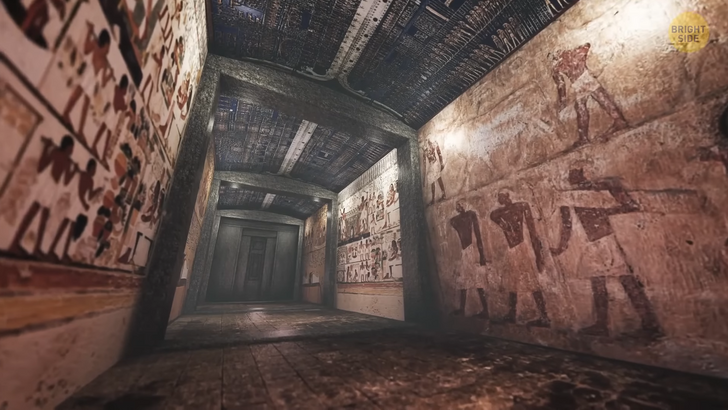
You’d have had a stone oven and kept your food stored in a pit in the ground. You’d have spent your days tending to crop fields by the Nile river or taking care of cattle and ducks.
On tax days, you’d have packed up some of your harvest and brought it to the temple as payment for the usage of land. If you had been a member of the elite, you’d have spent most of your days in banquets. You’d have adorned yourself in gold and semi-precious stones, displaying all your wealth.
If you had lived in Ancient Egypt, maybe you would have been one of those who invented tables! Yep, before the Egyptians, there was no such thing as a table! This invention appeared as a way to keep food off the ground.











